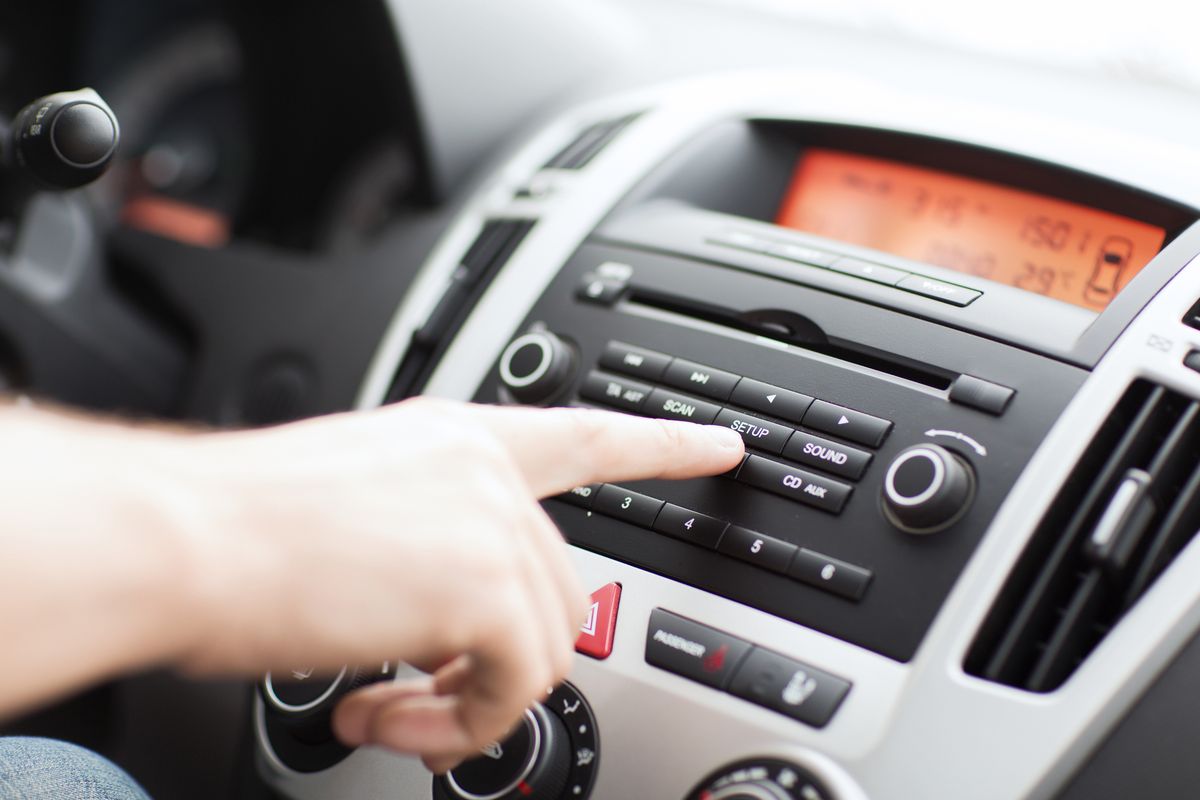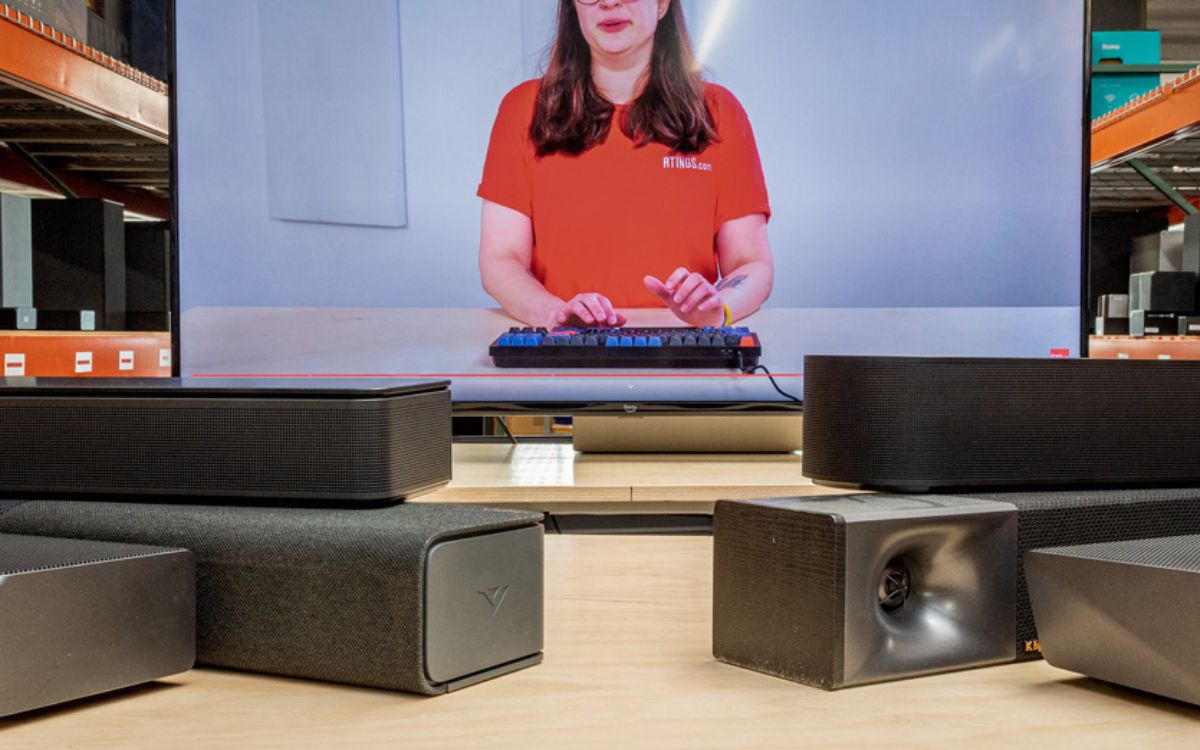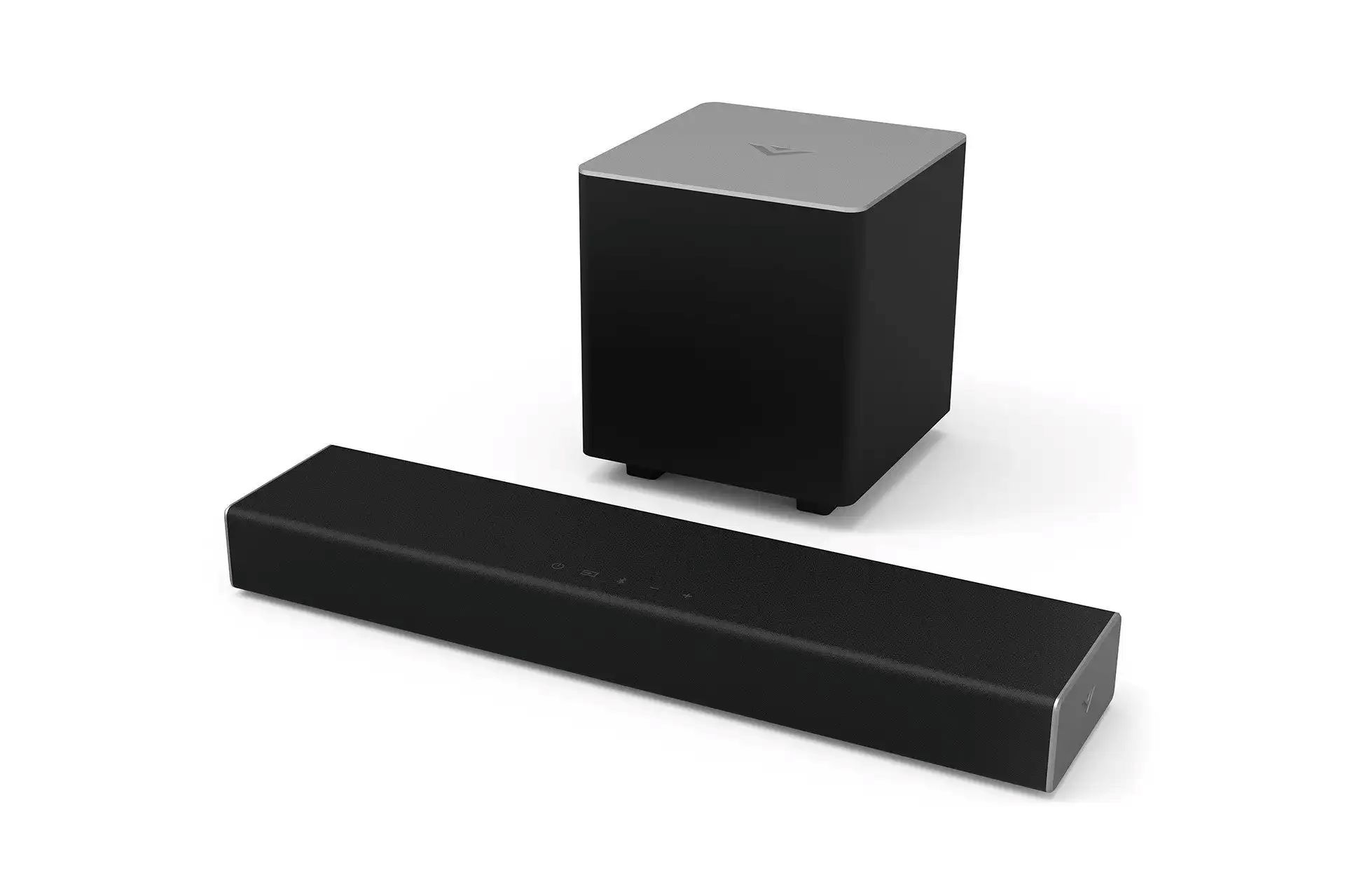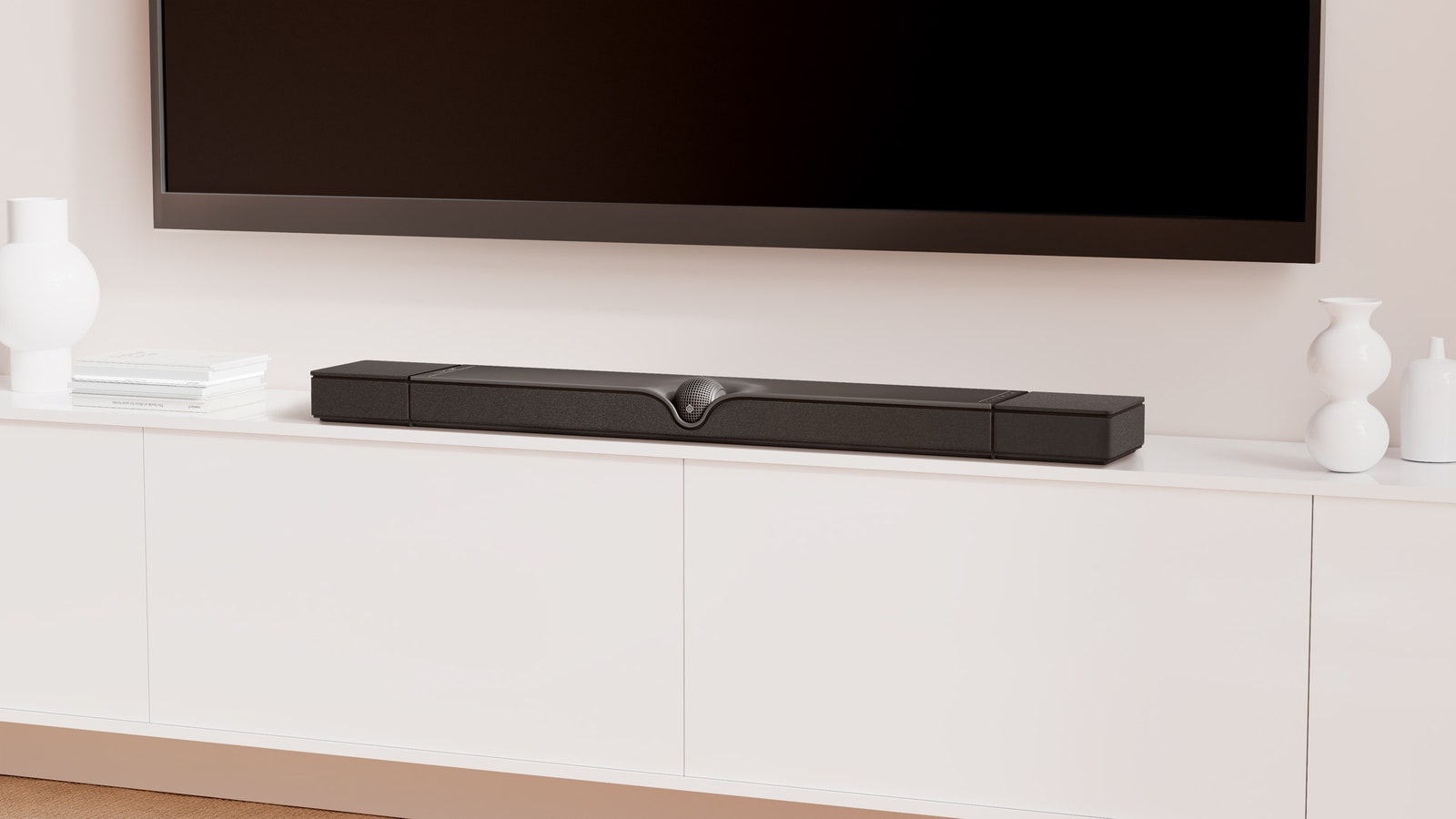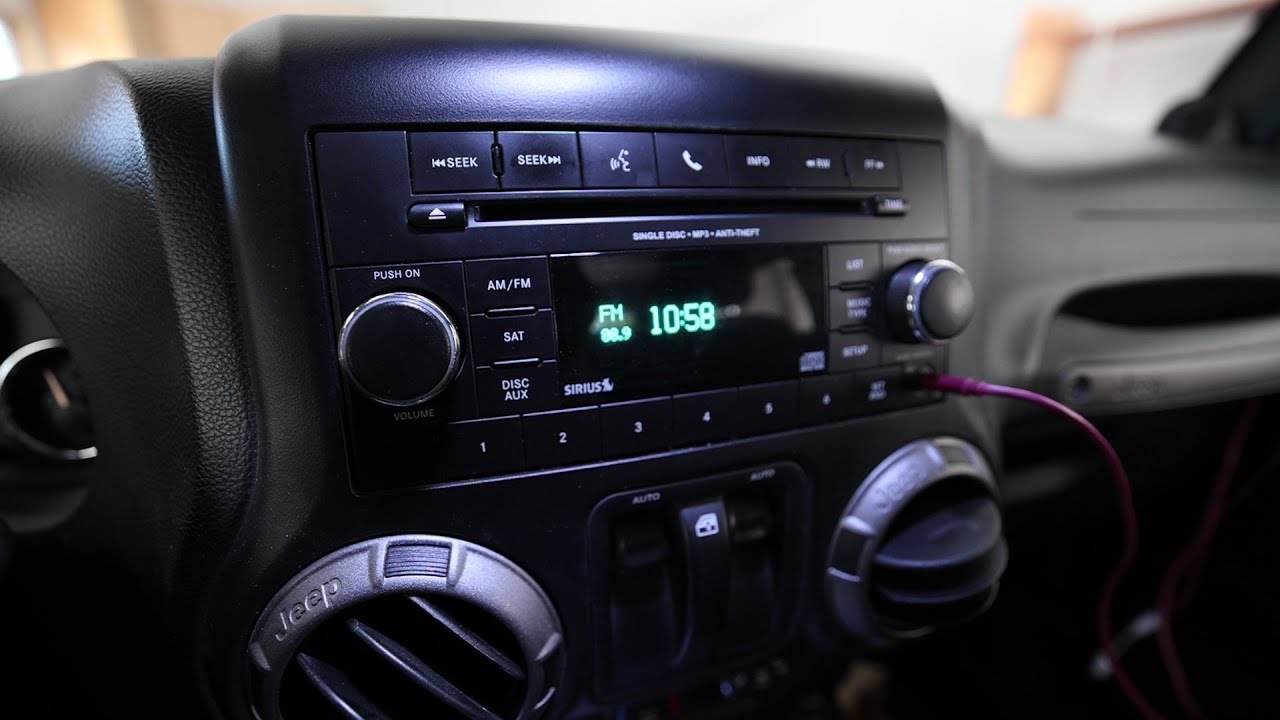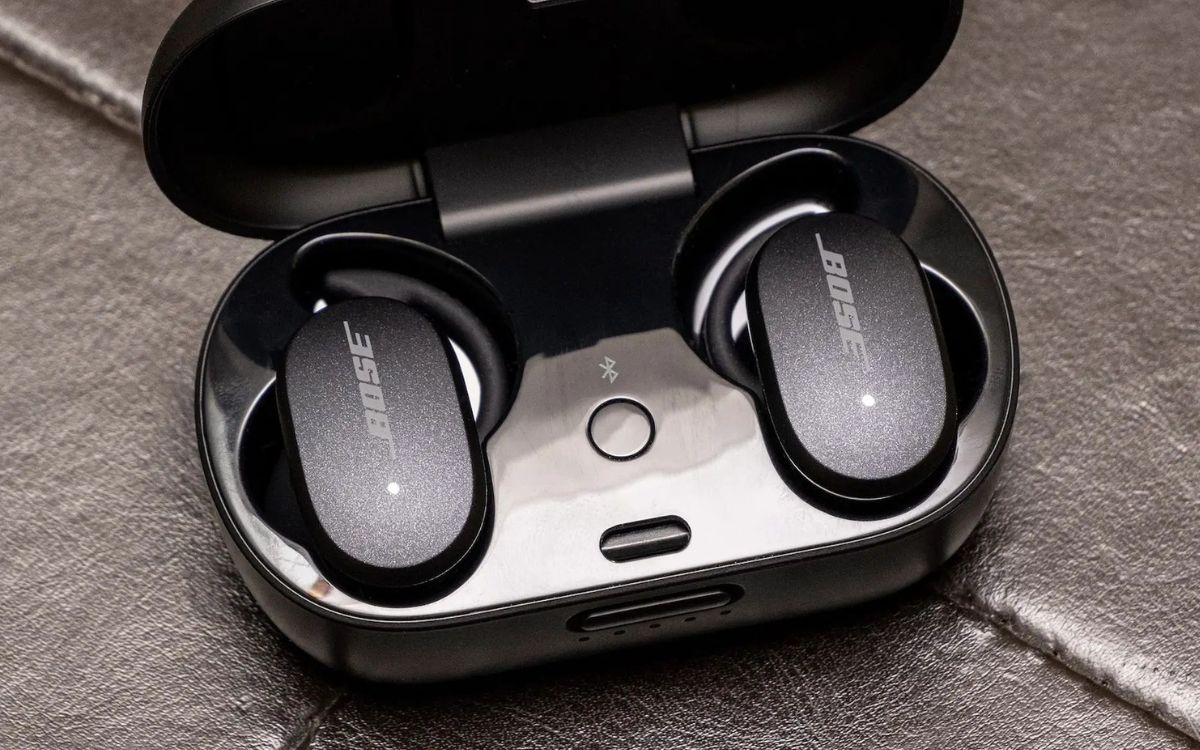Home>Devices & Equipment>Radio>Why Is My Sirius Radio Not Working
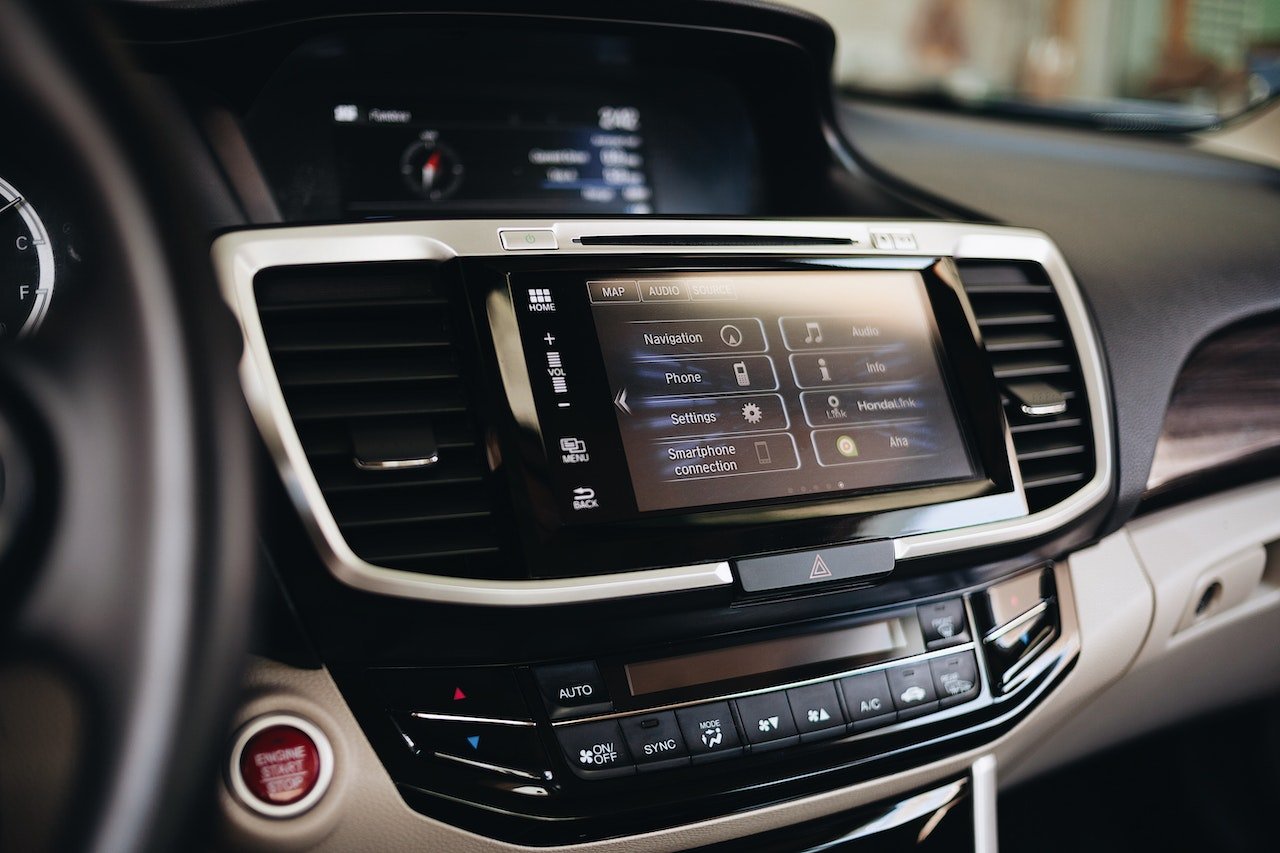

Radio
Why Is My Sirius Radio Not Working
Published: November 13, 2023
Experiencing issues with your Sirius radio? Discover possible reasons why your radio may not be working and find solutions to fix it.
(Many of the links in this article redirect to a specific reviewed product. Your purchase of these products through affiliate links helps to generate commission for AudioLover.com, at no extra cost. Learn more)
Table of Contents
- Possible Reasons for Sirius Radio Not Working
- Weak Signal Reception
- Subscription Issues
- Antenna Problems
- Radio Firmware Update Required
- SiriusXM App or Online Streaming Issues
- Channel Lineup or Programming Changes
- Technical Glitches or Outages
- Radio Hardware Malfunction
- Vehicle Integration or Compatibility Problems
- Activation or Account Setup Errors
- Weather Conditions Interfering with Signal
- Wiring or Electrical Issues
- Satellite Interference
- Receiver or Radio Component Failure
- Customer Service or Support Assistance Needed
Possible Reasons for Sirius Radio Not Working
If you’re experiencing issues with your Sirius radio, there could be a variety of reasons why it’s not working properly. Here are some of the possible reasons to consider:
- Weak Signal Reception: One common issue is a weak signal reception. This can occur if you are in an area with poor satellite coverage, such as underground parking lots or dense urban environments. Additionally, obstructions like tall buildings or trees can interfere with the satellite signal.
- Subscription Issues: Another reason for your Sirius radio not working could be related to your subscription. If your subscription has expired or is not active, you may not be able to access the Sirius channels. Ensure that your subscription is up to date and that your account is in good standing.
- Antenna Problems: A faulty antenna can also lead to issues with your Sirius radio. Check the antenna connection to ensure it’s securely attached to the radio. If the antenna is damaged or positioned incorrectly, it can affect signal reception.
- Radio Firmware Update Required: Sometimes, outdated firmware on your Sirius radio can cause it to malfunction. Check if there are any firmware updates available for your radio model and follow the manufacturer’s instructions to update it.
- SiriusXM App or Online Streaming Issues: If you are using the SiriusXM app or streaming service, disrupted internet connection or technical glitches can affect the playback. Make sure you have a stable internet connection and try restarting the app or device you’re using.
- Channel Lineup or Programming Changes: Occasionally, SiriusXM may make changes to their channel lineup or programming. If certain channels are no longer available, it may not be an issue with your radio but rather a change in the service. Check the SiriusXM website or contact customer support for any updates.
- Technical Glitches or Outages: Temporary technical glitches or outages with the Sirius satellite network can impact the functionality of your radio. If you suspect this to be the case, wait for a while and try again later.
- Radio Hardware Malfunction: In some cases, the radio itself may have a hardware malfunction, such as a faulty component or wiring issue. If you have tried troubleshooting other potential causes and the radio still doesn’t work, it might require professional repair or replacement.
- Vehicle Integration or Compatibility Problems: If your Sirius radio is integrated into your vehicle’s infotainment system, compatibility issues can arise. Check the user manual or contact the vehicle manufacturer for any specific troubleshooting steps or updates that may be required.
- Activation or Account Setup Errors: Double-check that your Sirius radio has been activated properly and that your account setup is correct. Errors during the activation process or account registration can prevent your radio from functioning correctly.
- Weather Conditions Interfering with Signal: Extreme weather conditions, such as heavy rain or snow, can temporarily disrupt the satellite signal and affect your reception. Be aware of any severe weather in your area and wait for conditions to improve.
- Wiring or Electrical Issues: If you have recently installed or modified your Sirius radio setup, there may be wiring or electrical issues causing the problem. Ensure that all connections are secure and properly installed.
- Satellite Interference: Interference from other satellites or external sources can impact the signal quality of your Sirius radio. Minimize the presence of any potential interfering devices near your radio or antenna.
- Receiver or Radio Component Failure: In rare cases, a specific component or the entire receiver of your Sirius radio may fail. If all other troubleshooting steps have been attempted and the radio still doesn’t work, it may require professional repair or replacement.
- Customer Service or Support Assistance Needed: If you have exhausted all troubleshooting options and are still experiencing issues with your Sirius radio, do not hesitate to reach out to SiriusXM customer service or support for further assistance. They can provide personalized help and guide you through the troubleshooting process.
Remember, the troubleshooting steps may vary depending on the specific model of your Sirius radio and the type of subscription you have. Always refer to the user manual or contact customer support for model-specific guidance.
Weak Signal Reception
One of the possible reasons why your Sirius radio is not working properly is weak signal reception. The strength of the satellite signal plays a crucial role in ensuring uninterrupted access to your favorite Sirius channels. Here are some factors that can contribute to weak signal reception:
- Obstructions: If you are in an area with tall buildings, dense trees, or other physical obstructions, the satellite signal may be attenuated or blocked. In such cases, try moving your radio to a location with a clearer view of the sky, preferably near a window or outside.
- Interference: Certain electronic devices and sources of electromagnetic radiation can interfere with the satellite signal. Keep your Sirius radio away from other devices such as smartphones, laptops, and wireless routers to minimize interference.
- Environmental Factors: Weather conditions, such as heavy rain, snow, or extreme atmospheric disturbances, can affect satellite signal quality. Wait for the weather to improve before troubleshooting your radio.
- Geographic Location: Some regions may have weaker satellite coverage compared to others. If you frequently travel to remote or rural areas, you may experience weaker signal reception. Consider checking the SiriusXM coverage map to get an idea of the signal strength in your location.
- Antenna Placement: The position and orientation of the antenna can impact signal reception. Ensure that the antenna is properly mounted, securely connected to the radio, and positioned in a way that maximizes signal reception. Experiment with different antenna placements to find the optimal position.
If you are still experiencing weak signal reception after considering these factors, you may need to invest in a signal booster or an external antenna. These accessories can enhance signal strength and improve the overall performance of your Sirius radio.
It’s worth noting that intermittent signal loss or buffering can also occur due to temporary satellite network issues or during transitions between satellite beams. In such cases, the problem usually resolves itself within a short period of time.
If weak signal reception persists despite troubleshooting, it is recommended to contact SiriusXM customer support for further assistance. They can provide additional guidance specific to your situation and help you resolve the issue efficiently.
Subscription Issues
If your Sirius radio is not working, one of the possible reasons could be related to your subscription. Here are some subscription-related issues to consider:
- Expired Subscription: If you have not renewed your SiriusXM subscription, your radio may be unable to access the Sirius channels. Check your subscription status and ensure that it is active and up to date. If needed, renew your subscription to regain access to the Sirius programming.
- Payment Issues: If there is an issue with your payment method or if the payment for your subscription has failed to process, your radio may not work. Ensure that your credit card information is correct and that you have sufficient funds to cover the subscription cost.
- Account Suspension: In some cases, SiriusXM may suspend your account due to non-payment or violation of their terms of service. If your account is suspended, your radio will not function until the issue is resolved. Contact SiriusXM customer support to address any account-related problems.
- Reactivation Required: If you have recently changed your subscription plan or made modifications to your account, your radio may require reactivation. Refer to the instructions provided by SiriusXM to reactivate your radio and ensure that it is properly linked to your updated subscription details.
- Incorrect Radio ID: Make sure you have provided the correct Radio ID when activating your radio or updating your subscription. An incorrect Radio ID can cause authentication issues, preventing your radio from functioning correctly. Double-check the Radio ID and correct any errors if necessary.
- Regional Restrictions: Some channels or content may be subject to regional restrictions based on licensing agreements. If you are unable to access specific channels or content, it may be due to these restrictions rather than an issue with your subscription. Verify the availability of the channels in your region.
If you have checked and resolved any subscription-related issues but your Sirius radio is still not working, it is advisable to reach out to SiriusXM customer support for further assistance. They can verify the status of your subscription, troubleshoot account-related issues, and provide the necessary steps to restore functionality to your radio.
Antenna Problems
If your Sirius radio is not working as expected, it’s possible that the issue lies with the antenna. The antenna plays a vital role in receiving the satellite signal necessary for your radio to function properly. Here are a few antenna-related problems to consider:
- Loose or Disconnected Antenna: Check the connection between the antenna and your Sirius radio. Ensure that the antenna is securely connected to the radio. A loose or disconnected antenna can result in weak or no signal reception.
- Antenna Damage: Examine the condition of the antenna for any signs of physical damage. If the antenna is broken, bent, or damaged in any way, it can negatively impact signal reception. In such cases, it is recommended to replace the antenna with a compatible one.
- Antenna Placement: Proper antenna placement is crucial for optimal signal reception. Ensure that the antenna is positioned in an area with a clear line of sight to the sky. Avoid placing the antenna in locations that may have obstructions such as buildings or trees.
- Antenna Interference: The antenna should be kept away from other devices or objects that may cause interference. Electronics, including smartphones, laptops, or wireless routers, can emit electromagnetic signals that interfere with the satellite signal reception. Keep the antenna away from such devices to minimize interference.
- Antenna Orientation: Some antennas have a directional design, which means they need to be oriented correctly for optimal performance. Check the user manual or manufacturer’s instructions to ensure that the antenna is positioned correctly.
- Weather Effects: Adverse weather conditions such as heavy rain, snow, or extreme atmospheric disturbances can temporarily interfere with the satellite signal reception. If you notice a loss of signal during severe weather, it is recommended to wait for the weather to improve before troubleshooting further.
If you have checked the antenna connections, placement, and orientation, and the issue persists, it may be necessary to replace the antenna. Consult with the manufacturer or contact SiriusXM customer support for guidance on finding a compatible replacement antenna.
It’s important to note that some vehicles or home setups may have built-in antennas that cannot be easily replaced. In such cases, professional assistance may be required to troubleshoot or repair the antenna system.
For additional assistance or troubleshooting steps specific to your antenna setup, don’t hesitate to reach out to SiriusXM customer support. They can provide more detailed guidance based on your specific antenna model and configuration.
Radio Firmware Update Required
If your Sirius radio is not functioning properly, one possible reason could be that the firmware on your radio needs to be updated. Firmware is the software that controls the functionality and features of your radio. Here are a few things to consider regarding firmware updates:
- Outdated Firmware: Over time, manufacturers may release firmware updates to address bugs, improve performance, or add new features to their radios. If your radio is running outdated firmware, it may not be able to work seamlessly with the Sirius satellite service. Check the manufacturer’s website for any available firmware updates for your specific radio model.
- How to Update Firmware: Updating the firmware of your radio typically involves downloading the latest firmware file from the manufacturer’s website and following the instructions provided. This may involve connecting your radio to a computer via USB or using a specific update tool provided by the manufacturer.
- Backup and Reset: Before updating your radio’s firmware, it is a good practice to back up any settings or presets you have customized. Some firmware updates may require a reset of the radio, which can erase your settings and presets.
- Manufacturer Support: If you are unsure about how to update the firmware on your radio, consult the user manual or reach out to the manufacturer’s customer support for assistance. They can provide step-by-step instructions or troubleshoot any issues you may encounter during the update process.
- Benefits of Updating Firmware: Updating your radio’s firmware can bring various benefits, such as improved compatibility, enhanced performance, and access to new features or channels. Keeping your firmware up to date ensures that your radio functions optimally and is compatible with any changes made by SiriusXM.
- Patience During Update: During the firmware update process, it is essential to be patient and follow all instructions carefully. Interrupting the update process or disconnecting the radio prematurely can cause irreversible damage to the radio’s firmware and render it inoperable.
If you have completed the firmware update but are still experiencing issues with your Sirius radio, it is recommended to explore other potential causes or reach out to SiriusXM customer support for further assistance. They can help diagnose any underlying problems and provide additional troubleshooting steps or solutions.
SiriusXM App or Online Streaming Issues
If you are using the SiriusXM app or streaming service to access your favorite Sirius channels, issues with the app or online streaming can sometimes impact the performance of your Sirius radio. Here are a few factors to consider:
- Internet Connection: Ensure that you have a stable and reliable internet connection. Unstable or slow internet connections can result in interrupted playback, buffering, or inability to access the SiriusXM app or streaming service. Try restarting your router or connecting to a different network to troubleshoot any network-related issues.
- App Updates: Check if there are any available updates for the SiriusXM app. Keeping the app up to date ensures that you have the latest features and bug fixes. Go to your device’s app store and look for any pending updates for the SiriusXM app.
- Clear Cache and Data: Over time, the app’s cache can accumulate temporary files that may cause performance issues. Clearing the cache and data of the SiriusXM app can help resolve any app-related problems. Consult your device’s settings or app management options to clear the cache and data of the app.
- Device Compatibility: Verify that your device meets the minimum system requirements for running the SiriusXM app. Older or incompatible devices may struggle to run the app smoothly and could lead to issues with playback or streaming. Refer to the SiriusXM website or app documentation for device compatibility information.
- App Reinstallation: If the SiriusXM app continues to malfunction or experience issues, consider uninstalling and reinstalling the app. This can help resolve any lingering software issues that may be causing the problem.
- Account Login: Double-check that you are using the correct login credentials for your SiriusXM account. Incorrect login information can prevent you from accessing the app or streaming service. Reset your password if necessary to ensure that you have the correct account credentials.
- Server or Service Outages: Occasionally, SiriusXM may experience server or service outages that can affect app functionality or online streaming. Visit the SiriusXM website or social media channels for any service outage notifications. If a service outage is reported, the issue usually resolves itself once the service is restored.
- Customer Support: If you have tried these troubleshooting steps and are still encountering issues with the SiriusXM app or online streaming, reach out to SiriusXM customer support for further assistance. They can provide personalized help and guide you through additional troubleshooting steps specific to your device and account.
Keep in mind that app and online streaming issues can be intermittent and may be resolved by waiting for some time or restarting your device. However, if the problems persist or occur frequently, it’s recommended to seek assistance from SiriusXM customer support.
Channel Lineup or Programming Changes
If you notice that certain channels on your Sirius radio are no longer available or if there are changes in the programming lineup, the issue may not be with your radio but rather with the channel lineup or programming changes made by SiriusXM. Here are a few things to consider:
- Channel Updates: SiriusXM periodically makes updates to their channel lineup to add new channels or remove underperforming ones. It’s possible that the channel you are looking for has been moved or replaced by a different channel. Check the SiriusXM website or contact customer support to inquire about any recent channel updates.
- Subscription Package: The availability of specific channels is often tied to the subscription package you have. Some channels may require a higher-tier subscription to access. Ensure that your subscription package includes the channels you are looking for and consider upgrading if necessary.
- Genre Changes: SiriusXM sometimes reorganizes channels into different genres or categories. The channel you are accustomed to listening to may have been moved to a different genre or combined with other channels. Review the genre listings or contact customer support for assistance in locating the channel.
- Seasonal or Limited-Time Channels: SiriusXM occasionally introduces temporary channels that are available only for a limited period or during specific seasons. If you are unable to find a channel you typically listen to, it’s possible that it falls into this category and will become available again at a later time.
- Channel Mergers or Rebranding: SiriusXM may merge or rebrand channels, resulting in changes to their names or programming format. If you are having trouble locating a specific channel, try searching for alternative names or checking if any channels have been combined or rebranded.
- Guide or Receiver Update: Sometimes, channel changes may not be immediately reflected in the on-screen program guide of your Sirius radio. To ensure you have the latest channel information, perform a guide update or firmware update on your radio if applicable.
It’s important to stay informed about any channel lineup or programming changes made by SiriusXM. Check their website, social media channels, or contact customer support for the most up-to-date information regarding any changes that may affect your Sirius radio.
If you have confirmed that there have been no channel lineup or programming changes that would explain the absence of a specific channel, it is recommended to contact SiriusXM customer support for further assistance. They can help troubleshoot the issue and provide more information about the availability of specific channels on your radio.
Technical Glitches or Outages
Technical glitches or temporary outages can sometimes impact the performance of your Sirius radio. These issues can occur due to various reasons, such as system updates, maintenance, or unforeseen technical difficulties. Here’s what you need to know:
- Temporary Outages: SiriusXM may experience temporary outages that could affect the availability of channels or cause disruptions in service. These outages are usually resolved within a short period, and normal service resumes automatically. Check the SiriusXM website or social media channels for any official announcements regarding outages.
- System Updates: Periodic system updates are necessary to improve the performance and functionality of SiriusXM services. During these updates, you may experience temporary disruptions or glitches. If you encounter any issues, restart your radio and allow it to reconnect to the updated system.
- Receiver Software Updates: Occasionally, manufacturers release software updates for their Sirius radios to address any software bugs or improve the overall performance. Ensure that your radio is running the latest software version by checking for updates on the manufacturer’s website or following the instructions provided by the manufacturer.
- App or Streaming Service Glitches: If you’re using the SiriusXM app or online streaming service, occasional glitches may occur. These glitches could manifest as buffering, freezing, or interrupted playback. Try closing and reopening the app, clearing cache and data, or restarting your device to resolve minor app-related glitches.
- Multiple Device Usage: If you use your Sirius radio along with other devices that access the internet or utilize streaming services, bandwidth congestion can occur. This can result in poor reception or interrupted playback. Limit the number of devices using the internet simultaneously to ensure optimal performance.
- Weather Conditions: Severe weather conditions, such as major storms or extreme atmospheric disturbances, can occasionally affect satellite signal reception. If you’re experiencing issues during severe weather, it’s advisable to wait for the weather to improve before expecting normal performance from your Sirius radio.
In most cases, technical glitches or outages are temporary, and the service is restored automatically. However, if the problem persists for an extended period, it’s recommended to contact SiriusXM customer support. They can provide further assistance, troubleshoot the issue, and provide updates on any ongoing technical difficulties.
Radio Hardware Malfunction
If you have exhausted all other troubleshooting options and your Sirius radio is still not working properly, there is a possibility of a hardware malfunction. Radio hardware malfunctions can occur due to various reasons, such as component failure or wiring issues. Here are a few things to consider:
- Faulty Component: Over time, the internal components of the radio can wear out or fail. This can result in issues such as audio distortion, reception problems, or complete malfunction. If you suspect a faulty component, it is recommended to seek professional repair or consider replacing the radio.
- Wiring Issues: Faulty or damaged wiring can cause problems with the functionality of the radio. If you have recently made changes to the wiring setup or if you notice any frayed or disconnected wires, it may be contributing to the malfunction. In such cases, it is advisable to have the wiring inspected and repaired by a professional.
- Physical Damage: Accidental drops or impacts can cause physical damage to the radio, affecting its performance. Check for any visible signs of damage, including cracks, dents, or loose parts. If physical damage is present, it may require repair or replacement of the radio.
- Power Issues: Ensure that the radio is receiving adequate power and that the power source is functioning correctly. If the radio is not turning on or if there are intermittent power issues, it could indicate a problem with the power supply or internal power circuitry of the radio.
- Overheating: Continuous operation of the radio at high temperatures or in areas with poor ventilation can lead to overheating. Overheating can cause damage to the internal components and result in various performance issues. Make sure the radio is not exposed to extreme temperatures and that it is placed in a well-ventilated area.
If you suspect a hardware malfunction, it is recommended to consult a professional technician or the manufacturer for further evaluation and repair. They can provide specific guidance based on the make and model of your radio and advise you on the best course of action.
Keep in mind that hardware malfunctions are relatively uncommon but can occur over the lifespan of any electronic device. Taking proper care of your radio, ensuring regular maintenance, and promptly addressing any issues that arise can help prolong its lifespan and enhance its performance.
If you’re unsure whether the issue is related to a hardware malfunction, it’s always a good idea to contact SiriusXM customer support. They can help you troubleshoot further and determine if a hardware malfunction is likely.
Vehicle Integration or Compatibility Problems
If you are experiencing difficulties with your Sirius radio that is integrated into your vehicle’s infotainment system, there may be compatibility or integration issues to consider. Here are a few factors that could be causing the problem:
- Compatibility: Ensure that your Sirius radio is compatible with your vehicle’s infotainment system. Check the manufacturer’s documentation or contact customer support to verify compatibility. If your radio is not designed to integrate with your specific vehicle model, it may not function as intended.
- Software Updates: Manufacturers occasionally release software updates for vehicle infotainment systems to improve compatibility and address issues. Check if there are any available updates for your vehicle’s system and follow the manufacturer’s instructions to update it. An outdated software version can lead to compatibility problems with the Sirius radio.
- Interface or Wiring Issues: Verify that all necessary cables and connections between the Sirius radio and the vehicle’s infotainment system are properly installed and functioning correctly. Loose or faulty connections can cause integration problems and affect the performance of the radio.
- Configuration Settings: Review the configuration settings of your vehicle’s infotainment system to ensure that it is correctly set up for the Sirius radio. Check if there are any specific settings or preferences related to the radio that need to be adjusted for optimal performance.
- Integration Modules: Some vehicles may require additional integration modules or adapters to connect the Sirius radio to the infotainment system. Verify if your vehicle requires any specific modules, and ensure that they are properly installed and compatible with both the radio and the vehicle.
- Manufacturer Support: If you are encountering integration or compatibility issues, reach out to the vehicle manufacturer or their customer support for assistance. They can provide model-specific guidance on troubleshooting steps or recommend authorized service centers for further assistance.
It’s important to note that vehicle integration or compatibility issues can be complex and may require professional help. If you have followed troubleshooting steps provided by the manufacturer without success, it’s recommended to consult with an authorized dealer or a qualified technician who specializes in vehicle electronics.
In some cases, it may be necessary to replace the integrated Sirius radio module or consider alternative solutions, such as using a SiriusXM aftermarket adapter or external receiver, to bypass compatibility issues with the vehicle’s infotainment system.
For additional assistance or guidance specific to your vehicle and Sirius radio integration, don’t hesitate to reach out to SiriusXM customer support. They can provide further troubleshooting steps and recommendations based on your specific setup.
Activation or Account Setup Errors
If your Sirius radio is not working as expected, there may be activation or account setup errors causing the issue. Here are a few factors to consider when troubleshooting activation or account setup errors:
- Activation Status: Double-check whether your Sirius radio has been successfully activated. If you have recently acquired the radio or made changes to your subscription, activation may be required. Follow the activation instructions provided by SiriusXM, ensuring that you have completed all necessary steps.
- Account Information: Verify that the account information associated with your Sirius radio is accurate. Ensure that you have provided the correct Radio ID and that your account details match the information provided during the setup process.
- Multiple Radios: If you have multiple Sirius radios, ensure that each radio is properly activated and associated with its respective account or plan. Mistakenly activating or associating a radio with the wrong account can cause activation or account setup errors.
- Radio ID Confirmation: The Radio ID is a unique identifier for your Sirius radio. Double-check that you have entered the correct Radio ID during the activation or account setup process. An incorrect Radio ID can lead to activation or account-related issues.
- Subscription Confirmation: If you have recently changed your subscription plan or upgraded your account, ensure that the changes have been properly processed and confirmed by SiriusXM. Incorrect or incomplete subscription changes can result in activation or account setup errors.
- Account Verification: Confirm that your SiriusXM account is in good standing and that there are no outstanding issues, such as non-payment or account suspension. Contact SiriusXM customer support if you suspect any account-related problems that may be preventing proper activation or setup.
- System Latency: Sometimes, there may be a delay in the activation or account setup process due to system latency. Allow some time for the system to process the necessary changes, and then check if your Sirius radio is functioning as expected.
If you continue to experience activation or account setup errors, it is recommended to contact SiriusXM customer support for further assistance. They can verify the status of your account, troubleshoot any activation issues, and guide you through the necessary steps to rectify the problem.
When reaching out to customer support, be prepared to provide your account details, Radio ID, and any relevant information regarding the activation or account setup process. This will help expedite the resolution process and ensure that you receive accurate assistance tailored to your specific situation.
Weather Conditions Interfering with Signal
Weather conditions, especially severe or extreme weather, can occasionally interfere with the satellite signal reception of your Sirius radio. Here are a few things to consider when troubleshooting weather-related signal issues:
- Heavy Rain or Snow: During heavy rain or snowfall, the water droplets or snowflakes can obstruct or scatter the satellite signal, leading to signal loss or degradation. If you are experiencing issues with your Sirius radio during such weather conditions, it is advisable to wait until the weather improves before troubleshooting further.
- Atmospheric Disturbances: Strong atmospheric disturbances, such as thunderstorms or electromagnetic interference caused by lightning, can interfere with the satellite signal reception. Be aware that during such disturbances, it is normal to experience temporary signal loss or degraded reception.
- Location: Your location can also impact the signal quality during certain weather conditions. If you are in an area prone to severe weather or if you are in a geographically remote region, you may experience intermittent signal issues during adverse weather conditions.
- Antenna Position: Ensure that the antenna of your Sirius radio is positioned correctly to maximize signal reception. Placement near windows or an outdoor location can help improve the reception during challenging weather conditions.
It’s worth noting that temporary signal loss during severe weather conditions is usually resolved once the weather clears up. However, if you consistently experience signal issues even when the weather is calm or if the signal quality does not improve, it is advisable to contact SiriusXM customer support for further assistance.
Keep in mind that severe weather can affect the reception of satellite signals beyond the control of SiriusXM. In such cases, being patient and waiting for the weather to stabilize is the best course of action.
Additionally, if you are using the SiriusXM app or online streaming service, weather-related internet disruptions can impact the streaming quality or availability of the channels. Ensure that you have a stable internet connection during inclement weather conditions to minimize potential issues.
If you consistently experience weather-related signal problems, you may want to consider alternative solutions such as using the SiriusXM app or streaming service on a mobile device with a stable internet connection, or utilizing the online streaming option to access your Sirius channels while monitoring the weather for better reception.
Wiring or Electrical Issues
If your Sirius radio is not functioning properly, there is a possibility that the issue stems from wiring or electrical problems. Here are a few factors to consider when troubleshooting wiring or electrical issues:
- Loose or Damaged Connections: Check all the connections between your Sirius radio and its power source, including any cables or adapters. Ensure that the connections are secure and free from any visible damage. Loose or damaged connections can inhibit proper power delivery and affect the functionality of the radio.
- Fuse Issues: Inspect the fuses associated with your Sirius radio’s power source. A blown fuse can prevent the radio from receiving power. Refer to your vehicle’s manual or the radio’s documentation for the location and replacement procedure of the fuse, if necessary.
- Power Supply Issues: Verify that your Sirius radio is receiving an adequate power supply. Low voltage or intermittent power supply can result in poor functionality or sporadic operation. Ensure that the power supply to the radio is stable and within the specified range.
- Grounding Problems: The radio’s grounding connection is crucial for proper operation. Ensure that the grounding wire is securely connected to a suitable ground point to establish a reliable electrical connection.
- Wiring Damage: Inspect the wiring for any signs of damage, such as exposed or frayed wires. Damaged wiring can cause short circuits or interruptions in the electrical flow, leading to operational issues. If you notice any wiring damage, it is advisable to have it repaired or replaced by a professional.
- Electrical Interference: Other electronic devices or components in your vehicle may create electrical interference that can affect the performance of your Sirius radio. Avoid routing the radio’s wiring alongside or in close proximity to powerful electrical components to minimize interference.
If you have checked and addressed any wiring or electrical issues but are still experiencing problems with your Sirius radio, it may be necessary to consult a professional technician or seek assistance from the vehicle manufacturer. They can provide expert guidance and identify any underlying wiring or electrical problems that require specialized attention.
Troubleshooting wiring and electrical issues requires caution and expertise. If you are uncertain about any aspect of the process, it is best to seek professional help to avoid potential damage or injury.
Always follow the safety guidelines outlined in the radio’s documentation or consult a professional for assistance with any wiring or electrical issues related to your Sirius radio.
Satellite Interference
Satellite interference can be a potential cause for issues with your Sirius radio. While satellite signals are generally robust and reliable, certain factors can interfere with the signal reception. Here are some considerations when troubleshooting satellite interference:
- Physical Obstructions: Obstacles such as large buildings, trees, or other structures can obstruct the line of sight between the satellite and your radio’s antenna. Positioning the antenna in a location with an unobstructed view of the sky can help minimize interference.
- Electromagnetic Interference (EMI): Other electronic devices emitting electromagnetic fields can interfere with satellite signals. Keep your Sirius radio away from devices such as smartphones, laptops, or wireless routers that may cause EMI. Additionally, avoid routing the antenna cable alongside power cables or other electronic equipment to reduce the risk of interference.
- GPS Devices: GPS devices that operate on the same frequency spectrum as satellite signals can cause interference. If you have a GPS device installed in your vehicle or nearby, verify that it is not affecting the reception of your Sirius radio signal. Adjusting the positioning of the Sirius antenna or relocating the GPS device can help mitigate the interference.
- Satellite Placement: The location and positioning of satellites can affect signal strength. Satellites positioned closer to the horizon may have weaker signals due to the longer distance the signal must travel through the Earth’s atmosphere. Understanding the satellite placement and its impact on signal strength can help manage potential interference issues.
- Satellite Constellation: SiriusXM utilizes a constellation of satellites. In the event of a satellite malfunction, maintenance, or replacement, there might be temporary signal disruptions or degraded performance. These issues are typically resolved once the affected satellite is back in operation or a backup satellite is activated.
If you suspect satellite interference as the cause of your radio issues, try adjusting the position of your radio’s antenna, relocating nearby devices, or testing the radio in a different location to determine if the signal improves. It’s important to note that satellite interference is often temporary and can be influenced by factors outside of your control.
If you have exhausted troubleshooting options and suspect ongoing satellite interference, contact SiriusXM customer support to report the issue. They can provide further assistance and help diagnose any persistent signal interference problems.
It’s worth mentioning that satellite interference is relatively rare, as SiriusXM employs advanced technology and satellite positioning to provide consistent and reliable signal coverage. However, understanding the potential sources of interference can help you pinpoint and address any issues that may arise.
Receiver or Radio Component Failure
If you have exhausted all other troubleshooting steps and your Sirius radio is still not working properly, there is a possibility of a receiver or radio component failure. Over time, electronic devices may experience component wear or failure. Here’s what to consider when diagnosing receiver or component failure:
- Audio Distortion or No Sound: If you are experiencing audio distortion, no sound, or poor audio quality on your Sirius radio, it could indicate a failure in the audio circuitry or related components. In such cases, professional repair or replacement may be necessary.
- Display Issues: If the display on your Sirius radio is not functioning correctly, displaying garbled characters, or not lighting up, it could indicate a failure in the display module or associated components. A professional technician can diagnose and repair or replace these components if needed.
- Power Problems: If your Sirius radio fails to power on or experiences intermittent power issues, it may be due to a failure in the power circuitry or related components. Check the power supply and connections to ensure they are intact, and consult a professional if the issue persists.
- Hardware Malfunctions: Other hardware malfunctions, such as buttons not responding, knobs not functioning, or external ports not working, can indicate failures in specific components or the overall receiver hardware. A professional technician with expertise in radio repair can diagnose and resolve these issues.
- Age and Wear: Over time, electronic components can wear out due to regular usage or age-related factors. If your Sirius radio is relatively old or has been used extensively, component failure is a possibility. In such cases, repairing or replacing the affected components may be necessary.
- Professional Repair or Replacement: If you suspect a receiver or component failure, it is advisable to contact a professional technician who specializes in radio repair. They can assess the specific issue, diagnose the faulty component, and recommend the appropriate course of action, whether it be repair or replacement.
If your Sirius radio is still under warranty, check the warranty terms and conditions. In some cases, the manufacturer may provide repair or replacement services for faulty hardware components. It is recommended to contact the manufacturer or their authorized service centers for assistance in such cases.
Hardware failures in Sirius radios are relatively rare, as these devices are designed to be durable and reliable. However, if you have exhausted all other troubleshooting steps and suspect receiver or radio component failure, seeking professional assistance is the best way to diagnose and resolve the issue.
When reaching out to a professional technician, provide them with a detailed description of the symptoms and any troubleshooting steps you have already taken. This information will help them accurately diagnose the problem and initiate the appropriate repairs or replacements.
Customer Service or Support Assistance Needed
If you have gone through troubleshooting steps and are still experiencing issues with your Sirius radio, reaching out to the customer service or support team is a reliable next step. Here are a few reasons why you may need their assistance:
- Specialized Guidance: Customer service representatives are trained to provide personalized assistance in troubleshooting and resolving issues specific to your Sirius radio. They can guide you through additional troubleshooting steps tailored to your situation.
- Account Verification: If you suspect any account-related issues or inconsistencies, contacting customer service can help verify the status of your account, ensuring that it is active and in good standing.
- Technical Expertise: Customer service representatives are knowledgeable about the technical aspects of Sirius radios and can provide insights into potential hardware or software problems. They can help identify if the issue is related to the radio itself or any external factors.
- Activation or Account Setup: If you encounter difficulties during the activation or account setup process, customer service can help troubleshoot and ensure that the necessary steps are followed correctly.
- Software Updates: Customer service can inform you about any available firmware or software updates for your Sirius radio. They can provide instructions on how to perform the updates and address any concerns or questions you may have during the process.
- Subscription or Billing Issues: If you believe there are problems related to your subscription or billing, customer service can review your account, confirm payment status, and help resolve any subscription-related concerns.
- Warranty or Repair: If your Sirius radio is still under warranty or requires repair, customer service can provide information on warranty coverage and direct you to authorized service centers for necessary repairs or replacements.
- General Inquiries or Assistance: Customer service is available to address any general inquiries, provide clarification on service features, channel availability, or any other questions you may have about your Sirius radio.
When contacting customer service, be prepared to provide relevant information such as your account details, radio model, and specific details about the issue you are experiencing. This will help them better understand your situation and provide accurate assistance.
Customer service contact information can usually be found on the SiriusXM website or in the documentation provided with your radio. Reach out to them via phone, email, or online chat depending on the available options. Be patient and clearly communicate your concerns to ensure that you receive the necessary support to resolve your issue.
Remember, customer service is there to assist you and ensure your satisfaction with the Sirius radio service. Don’t hesitate to reach out to them for any concerns or problems you may encounter with your Sirius radio.

